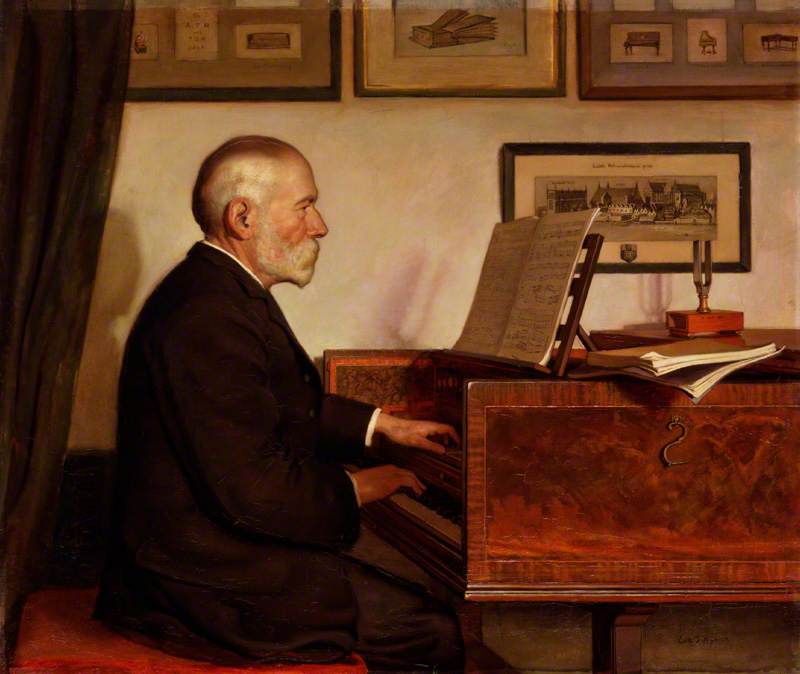Alfred James Hipkins
 Alfred James Hipkins (17 June 1826 – 3 June 1903) was an English musician, musicologist and musical antiquary.
Alfred James Hipkins (17 June 1826 – 3 June 1903) was an English musician, musicologist and musical antiquary.In 1840, at the age of 14, Hipkins became an apprentice piano tuner in the pianoforte factory of John Broadwood & Sons Ltd. In 1846, he was charged with training all of Broadwood's tuners in equal temperament, as many were still using the older meantone system. In 1849, he was named to the status of "senior workman," and he remained an employee of this company for the rest of his life. Despite having very limited musical training on the pianoforte and the organ, he gained a reputation for his performances of Chopin's music. He wrote many reviews of books on musical ethnology or musical antiquity for ''The Athenæum'' and ''The Musical Times''. In 1891 he gave the Cantor lectures on ''Musical instruments, their construction and capabilities'' to the Royal Society of Arts.
and several to the ninth edition of the 'Encyclopædia Britannica'. In 1881 he made a journey through Germany to examine historic pianofortes in the royal palaces, in particular the Gottfried Silbermann pianofortes that had belonged to Frederick the Great. He verified that they were made after the design of Bartolomeo Cristofori, rather than that of Christoph Schroeter, as had previously been believed. His major publications were [http://catalog.hathitrust.org/Record/001458063 'Musical Instruments, Historic, Rare, and Unique'] (1881), a standard work illustrated in colour by William Gibb; and [https://catalog.hathitrust.org/Record/001979468 'Description and history of the pianoforte and of the older keyboard stringed instruments'] (1896).}}
Hipkins married in October 1850 and the marriage produced a son John, who became a noted wood-engraver, and a daughter Edith, who became a highly successful portrait painter.
Hipkins, Carl Engel and Thomas Taphouse created three of the outstanding antiquarian collections of musical instruments in the U.K. According to his will, the Royal Institution received his collection of tuning forks and the Royal College of Music received his collection of musical instruments.
and were highly praised by George Bernard Shaw}} Provided by Wikipedia
1
2
3
4
